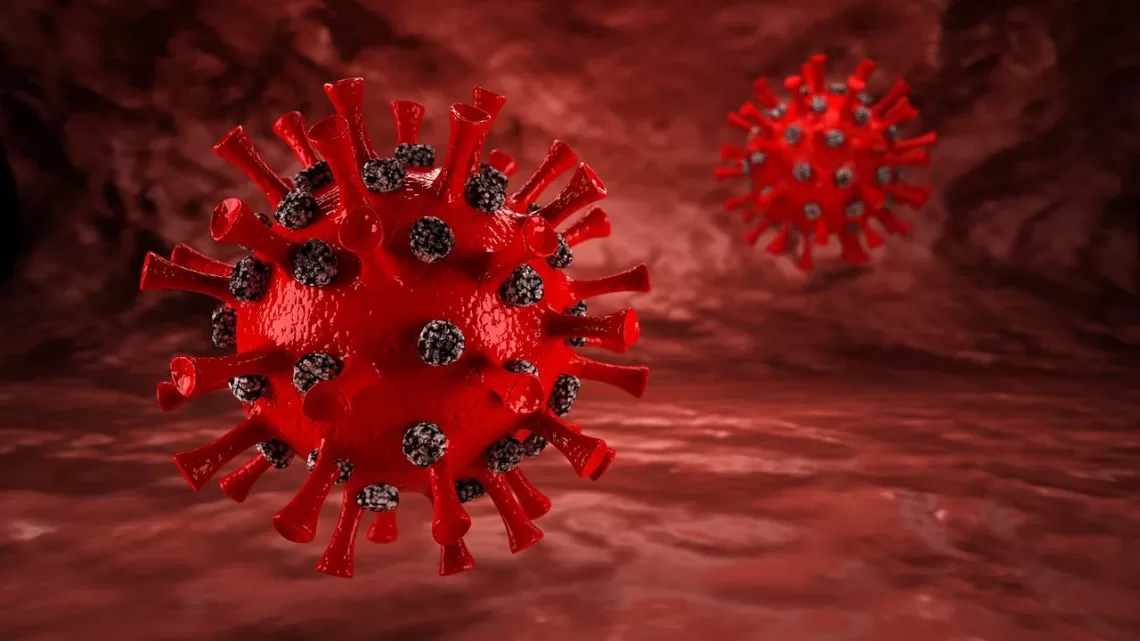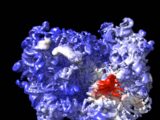
Genomic Analysis Identifies Genetic Variables Associated with Severe COVID-19
July 29, 2021A global collaboration identifies multiple genetic markers associated with SARS-CoV-2 infection and the severity of COVID-19.
In March 2020, thousands of scientists from around the world came together to address a critical and challenging question: why do some COVID-19 patients develop severe, life-threatening sickness needing hospitalisation, while others experience very moderate symptoms or none at all?
A thorough assessment of their findings to date, published in Nature, identifies 13 loci, or sites in the human genome, that are strongly related with COVID-19 infection or severity. Additionally, the researchers discovered possible causative factors such as smoking and a high body fat index. These findings are the outcome of one of the largest genome-wide association studies yet conducted, which enrolled almost 50,000 COVID-19 patients and two million healthy controls.
The findings may help identify potential targets for future therapeutics and demonstrate the value of genetic investigations in advancing our understanding of infectious disease.
Andrea Ganna, group head at the Institute for Molecular Medicine Finland (FIMM), University of Helsinki, and Mark Daly, director of FIMM and institute member at the Broad Institute of MIT and Harvard, created this global endeavour, dubbed the COVID-19 Host Genetics Initiative, in March 2020. The programme has expanded to become one of the largest collaborations in human genetics, with over 3,300 authors and 61 papers from 25 countries now participating.
Ben Neale, co-director of the Broad Institute’s Program in Medical and Population Genetics and co-senior author of the study, noted that while vaccines provide protection against infection, there is still significant room for improvement in COVID-19 treatment, which can be informed by genetic analysis. He noted that better treatment options could help transform the pandemic — which has forced widespread closures — into an endemic disease that is more limited and prevalent at low but consistent levels in the population, similar to the flu.
“The more proficient we become at treating COVID-19, the more equipped the medical community will be to handle the disease,” he explained. “If we had a system for treating infection and removing someone from the hospital, it would fundamentally transform our approach to public health.”
Diversity empowerment
The consortium analysed clinical and genetic data from roughly 50,000 individuals who tested positive for the virus and 2 million controls from a variety of biobanks, clinical studies, and direct-to-consumer genetic companies such as 23andMe. 810 patients from Finland’s FinnGen research were included.
Due to the massive volume of data flowing in from all around the world, the scientists were able to perform statistically sound studies far more quickly and from a wider variety of populations than any single group could have done on its own.
Two of the 13 loci found thus far by the study had a higher frequency in patients with East Asian or South Asian heritage than in those with European ancestry, highlighting the critical role of variety in genetic databases. “We have been far more effective in measuring genetic diversity than previous studies because we have made a concentrated effort to reach out to people worldwide,” Daly explained. “I believe there is still a long way to go, but we are making excellent progress.”
The researchers focused on one of these two loci in particular, which is located near the FOXP4 gene, which is associated with lung cancer. The FOXP4 variation associated with severe COVID-19 increases the expression of the gene, implying that blocking the gene may be a treatment option. Other loci related with severe COVID-19 included DPP9, a gene associated with lung cancer and pulmonary fibrosis, and TYK2, a gene associated with several autoimmune illnesses.
Mari Niemi, also at FIMM and the study’s main analyst, says the consortium stressed communication as the scientists examined data, publishing results immediately once they were verified for accuracy on their website. The researchers believe that these findings will guide the way to potential targets for repurposed medications.
The researchers will continue to analyse new data as it becomes available and will publish their findings in Nature’s “Matters Arising” style. They will investigate what distinguishes “long haulers,” or patients with persistent COVID-19 symptoms, from others, and will continue to find more loci related with infection and severe disease.
“In the next year, we’d like to generate a good number of very concrete therapeutic hypotheses,” Daly added. “Realistically, we will most likely continue to confront COVID-19 as a major health threat for an extended period of time. Any therapy that is developed this year, for example through the repurposing of an existing medicine in light of unambiguous genetic discoveries, will have a significant impact.”
“The project’s success demonstrates the critical relevance of Finland investing in FinnGen – allowing us to make a substantial, timely contribution – and in research infrastructures that enabled FIMM to complement studies from other countries by genotyping and doing statistical analysis in Helsinki. These investments position us to coordinate this critical global endeavour – and emphasise how critical it is for Finland at the moment to increase, rather than decrease, its expenditure in research,” Daly concluded.
A new frontier for genetics
Ganna stressed that the scientists discovered powerful genetic signals as a result of their combined efforts, a cooperative attitude of data sharing and transparency, and the sense of urgency that comes with knowing the entire world is facing the same peril simultaneously. He emphasised that geneticists, who frequently work with enormous datasets, have long recognised the value of open collaboration. “This demonstrates how much better research is when we collaborate — how much faster it moves and how much more we discover,” Ganna added.
Daly, for his part, is encouraged by the clarity and interpretability of their findings for geneticists. According to him, the findings gained from this work are novel and have the potential to transform paradigms in the field of human genetics, which has been dominated by studies of common chronic diseases, rare genetic diseases, and cancer.
“These results have been extremely illuminating, and they have made us realise that there is a great deal of untapped promise in using genetics to better understand and potentially develop therapies for infectious disease,” Daly explained. “I think this demonstrates how we may apply population genetics methodologies to a new set of problems, particularly in underdeveloped regions of the world.”
Reference:
The Initiative for COVID-19 Host Genetics. COVID-19’s human genomic architecture mapped. Nature, 8 July 2021, online. DOI: 10.1038/s41586-021-03767-x DOI: 10.1038/s41586-021-03767-x
For additional information on the Host Genetics Initiative, please visit the following website: https://www.covid19hg.org/


















